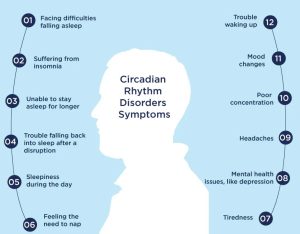
Health screening is one of the easiest ways to take charge of your well-being before things go sideways. Many health issues don’t show symptoms until they’re more serious, making early detection essential. Routine screenings help you spot potential problems before they become full-blown health surprises.
You don’t have to feel unwell to start screening. In fact, that’s exactly the point—catching problems before they catch you off guard. That’s why staying on top of your health screening schedules isn’t just smart—it’s necessary.
What Screenings Actually Do
Screenings look for signs of diseases before symptoms appear. These tests can range from simple blood checks and physical exams to more advanced scans and imaging. Depending on your age, lifestyle, and family history, certain conditions like diabetes, high cholesterol, hypertension, and cancer can be detected early through these tools.
It’s not just about checking boxes—it’s about checking in with your body. When you follow appropriate health screening schedules, you build a habit of awareness that supports long-term wellness.
When Should You Start? Understanding Health Screening Schedules
Health screening isn’t one-size-fits-all. The right time to start and the tests to take depend on your age, gender, and risk factors.
For instance:
- Adults in their 20s and 30s should focus on baseline checks like blood pressure, BMI, and cholesterol.
- Once you hit 40, screenings for diabetes and colorectal cancer may become part of your routine.
- Women might need mammograms and Pap smears at specific intervals, while men might be advised to test for prostate issues.
The key is to follow the health screening schedules recommended by healthcare professionals in Singapore. These schedules are based on national guidelines that align with your risk profile and medical history.
Prevent Now, Save Later
Skipping screenings might save time now, but it could cost a lot more down the road. Early detection can prevent complications, reduce the need for expensive treatments, and improve your quality of life.
Think of health screening as maintenance. Just like you wouldn’t drive your car for years without a service check, you shouldn’t go years without checking in on your health. By staying on top of your health screening schedules, you’re investing in your future health—often with minimal time or discomfort.
Common Excuses, Real Risks
Many people put off screenings because they’re “too busy,” “feeling fine,” or simply afraid of bad news. But ignoring your health won’t make problems disappear. In fact, it increases the chance of being blindsided later.
Here’s the thing—early-stage conditions are often treatable and reversible. But once symptoms appear, treatment tends to be more complicated. Following proper health screening schedules is a way to take control before illness limits your options.
How to Make Screenings a Routine
Start by speaking with a healthcare provider who understands your individual needs. Together, you can build a personalised plan based on your age, family background, and lifestyle habits.
Here are a few practical tips:
- Set calendar reminders for annual or bi-annual screenings
- Pair your screening with other annual milestones (like your birthday)
- Schedule them together with a friend or family member for accountability
Making screenings a habit ensures they won’t get lost in the rush of life. Once it’s part of your routine, it becomes second nature—just like brushing your teeth or going for a dental check-up.
You Deserve Peace of Mind
Health screenings offer more than just results—they give you peace of mind. Whether your tests come back clear or highlight a concern, you’re making informed choices. That alone is empowering.
Regular health checks can also motivate healthier habits. When you see your numbers—blood sugar, cholesterol, blood pressure—it’s easier to take action. It becomes less about guesswork and more about understanding your body.
Your health is your responsibility, but you’re not alone. Following the right health screening schedules helps you and your healthcare provider work as a team to keep you in your best shape.
Final Thoughts: Stay Ahead, Not Behind
In a fast-paced world, it’s easy to ignore the quiet signals our bodies send. But ignoring your health today can lead to unexpected disruptions tomorrow. Following your health screening schedules is one of the simplest, most effective ways to stay in control.
Start early. Stay consistent. And give yourself the best chance to live fully—without the surprise of a preventable health issue knocking at your door.






